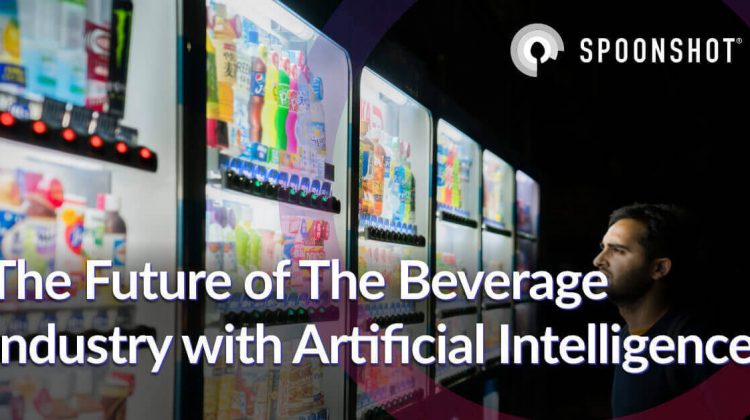
The personalized trends in food and beverage industry have led to the creation of products and applications using artificial intelligence (AI). Syskron, a subsidiary of Krones, has created the IIoT multi-client platform Share2Act, capable of interconnecting and mapping all machines used in production. The system also features numerous functions found in classic MES suites.
One of the growing trends in the food and beverage industry is the use of intelligent systems. Capgemini estimates international manufacturing companies will be building 40% more smart factories over the next five years. Smart factories have the potential to contribute between US$1.5 trillion and 2.2 trillion annually to the global economy by 2023.
With enormous data being collected from various company divisions, AI is incredibly useful in the beverage industry for analysis and actionable insights. For instance, ‘What’s Your Whisky,’ a mobile application developed by Diageo, analyzes consumer preferences to create their flavor chart and recommend a Single Malt that most closely matches their taste. This personalized mobile experience transforms how consumers interact with the brand.
Also Read: How COVID-19 Impacted the Food and Beverage Industry
Reasons How the Beverage Industry Prepares Itself for Future Growth with AI
A predominant beverage industry trend is understanding customer preferences through AI. For instance, Coca-Cola leveraged AI to create Cherry Sprite based on meaningful data generated by consumers.
AI/ML improves production and rapidly assesses quality while being unbiased and economical. The most significant advantage, however, is in the comprehensive insights gained about consumer preference. These insights open doors to unique flavor/ingredient combinations that would have never been discovered otherwise. A significant flavor trend of 2022 has been the personalization of products based on preference.
Alcoholic Beverages
Mackmyra Whisky collaborated with Microsoft and Fourkind to create the world’s first AI-generated whiskey. Mackmyra integrated the AI solution with existing recipes and customer feedback data to create thousands of diverse recipes. This led to cyclical filtering with the distillery’s master blender evaluating which ingredients would harmonize, retaining the recipes with the best combinations.
With repetition, the algorithm learned to recognize which flavor combinations would work and, using ML, began producing more desirable mixes. This boiled down to a single whisky which ultimately became the world’s first AI-generated but human-curated whiskey that went into production. ‘Intelligens,’ the first batch of this blend, was launched in September 2019.
Hot Beverages
While the application of ML in hot beverages has been relatively lower, it is catching up. ML can predict the quality of green or black tea with the help of different inputs across multiple metrics. An electronic nose (e-nose) is with artificial neural networks (ANN) to identify quality grades of green tea rapidly. AI/ML uses flavonoids, catechins, and total methyl-xanthines content to predict antioxidant activity.
Roest, a manufacturer of sample roasting machines, has partnered with Soundsensing, an audio and ML specialist. Their invention uses tinyML, a running machine learning on tiny devices in an IoT (internet-of-things) framework. It functions in a small microcontroller placed inside each coffee roasting machine.
The microcontroller includes a small microphone. An ML algorithm allows the tinyML to recognize and identify the first crack of the coffee beans with a high degree of accuracy. Based on the preferred flavor profile, the machine automatically switches off and stops the roasting process at a pre-set time after identifying the first crack.
Must Read: Functional Beverage Trends 2022
Non-Alcoholic Beverages
ANN models can assess drinking water quality using microbiological and chemical data as inputs with 100% accuracy. Evaluating fruit juice quality using e-nose outputs as inputs is growing popular. ML has been used to classify strawberry juice samples according to the processing treatment with 100% accuracy.
AI/ML is bringing in a new wave of flavor trends in 2021-22 in the beverage industry by creating business models with the potential to increase revenue and reinforce customer loyalty.



Leave a Reply